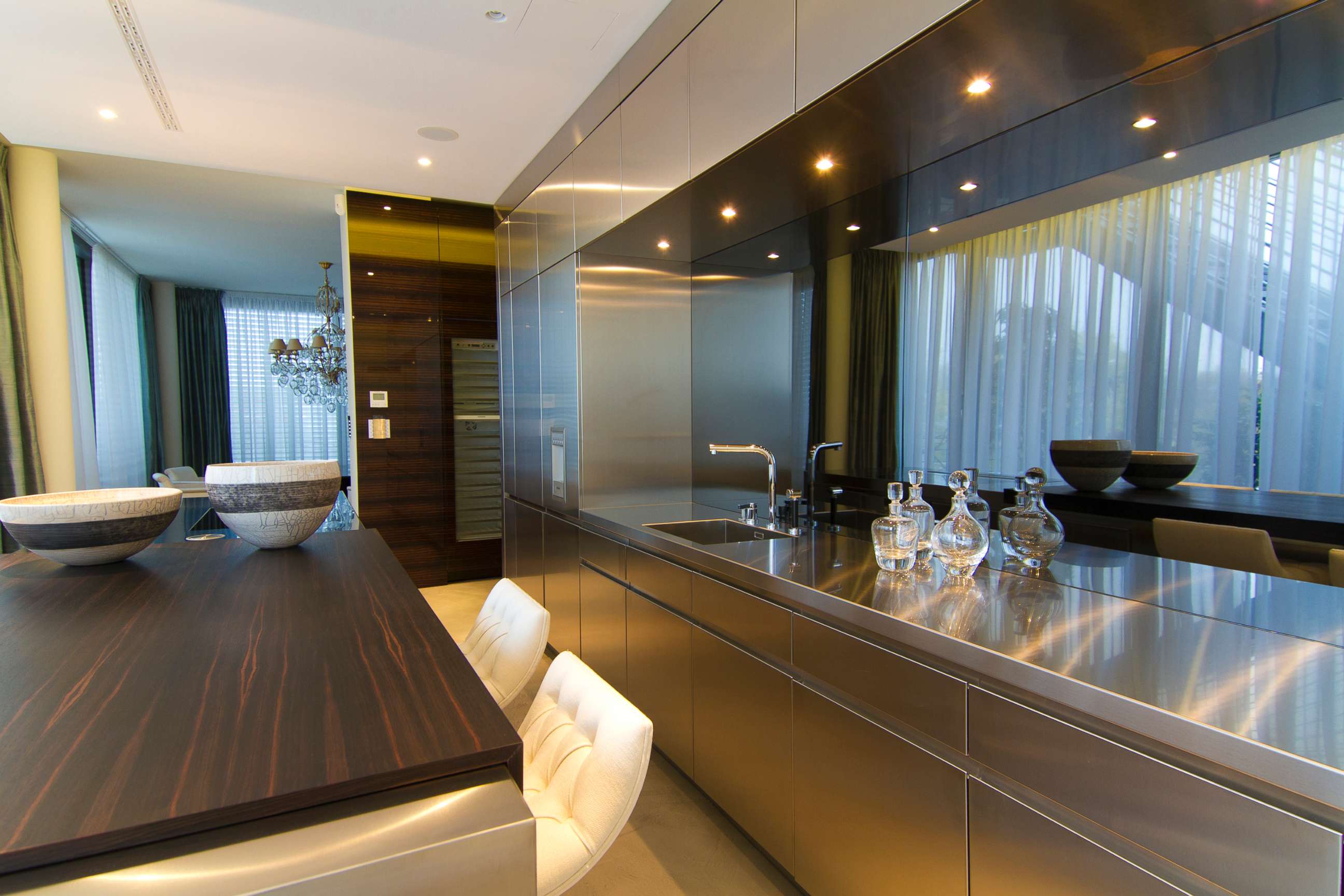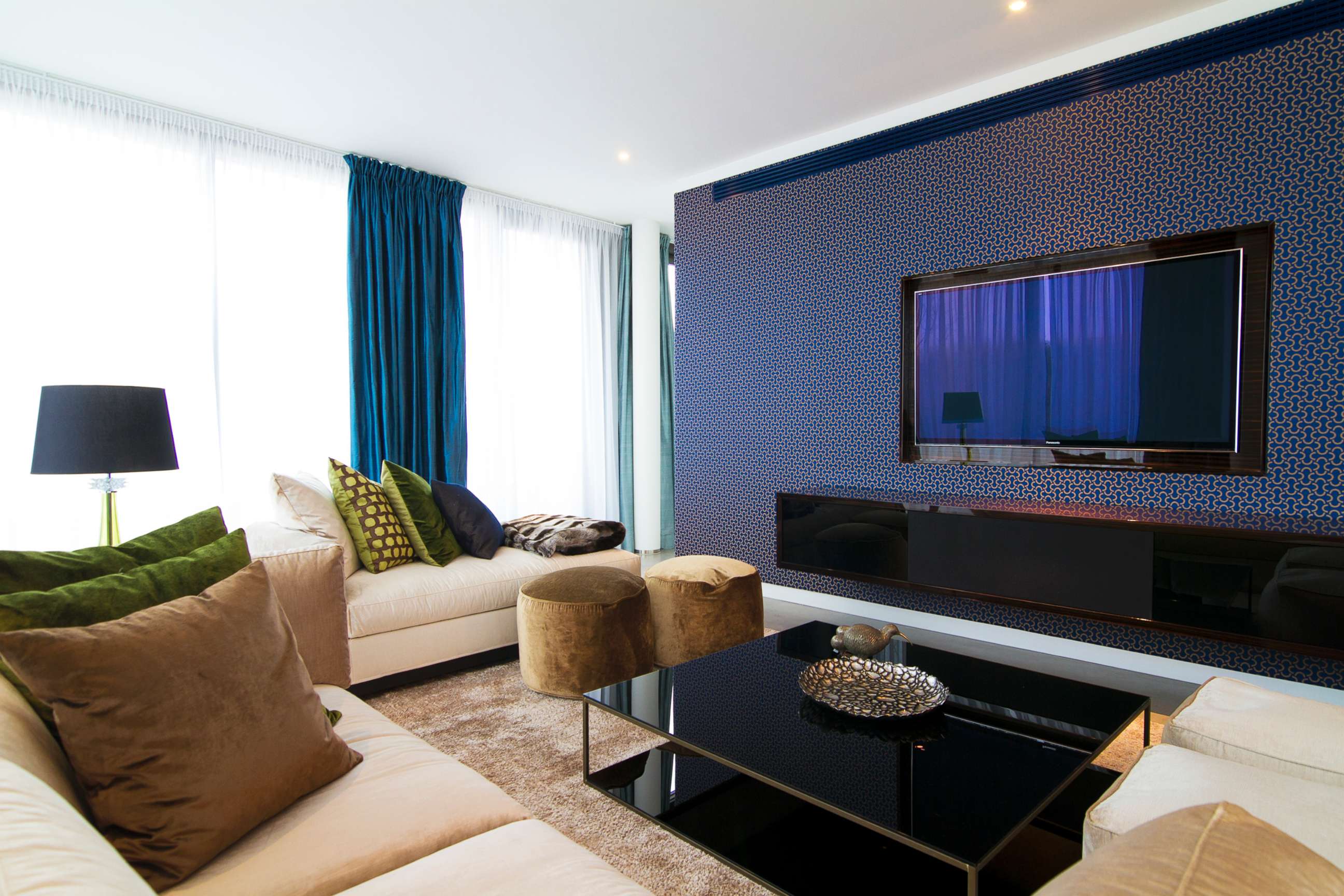Inside Berlin’s most expensive apartment
Berlin, Germany -- Berlin's days of being “Poor, but sexy” - as a former mayor once famously described it - are apparently over.
While the city still retains its hip, gritty veneer, attracting artists and creative-types in droves, the sprawling metropolis is increasingly gaining an air of luxury that was unthinkable just a few years ago. That's especially true in its expanding real estate market, where developers have spent the last decade erecting high-end apartments in virtually every corner of the city.
Now comes word that Berlin is exceeding its own expectations: a lavish condominium hit the market recently boasting one of the highest asking prices ever.
While the owners of the property won’t reveal its price tag, several estate agents estimate that it is north of $25 million, a sum that would nearly triple the city's current record home sale price. The property’s developer, Diamona & Harnisch, would not comment on its asking price, only to say that it would be revealed “upon request,” a moniker often given to luxury homes of substantial value and size or to simply maintain a degree of privacy.
Despite the eye-popping figure, however, some veteran real estate brokers in the German capital aren't really surprised.
“In some ways, it isn’t surprising given the level of buyer demand the city has seen over the past few years,” says Achim Amann, director at Black Label Properties, among a small number of brokers handling the sale of the new listing.
“The growth of the luxury sector here is expanding rapidly and prices are climbing much faster than anyone expected,” he says. “We’re seeing larger numbers of international investors arriving here who are willing to spend at the very high end of the property market and that's been good for Berlin's real estate economy.”
Black Label, which has been catering to international clients to Berlin for more than two decades, keeps offices in Berlin and London and has fostered real estate partnerships in Asia and the Middle East where a steady influx of buyers are investing in Berlin.

The home for sale sits in Berlin’s Diplomatenpark, a posh area of the city lined with upscale housing. It is part of 10 new Villas, including four constructed by Diamona & Harnisch, a luxury developer with condominium projects across Berlin.
The apartment occupies the top three floors of the building with a roof terrace and sprawling outdoor pool covered with black Italian sicis mosaic. The home measures more than 10,000 square foot (or roughly 1,000 square meters) with 3,200 square feet (300 square meters) of terrace space.
There are six bedrooms, four large bathrooms, three kitchens, and three fireplaces. A gym and sauna with spa are also included. The apartment‘s floor is made of pure flushed concrete finish in the public areas, as well as black fishbone parquet in the private areas. It also comes equipped with under-floor heating, Mitsubishi air-conditioning systems, and state of the art audio/video systems.

The pricey home hits the market as Berlin continues to enjoy rising home prices.
Condo prices per square meter on offer have risen about 13 percent this year; about 64 percent over the last five years, according to German Real Estate Association (IVD), elevating the German capital to one of the fastest appreciating markets in Europe. The city now ranks high among global markets worthy of increased real estate investment, several international surveys show.
After years of declines, Berlin is now enjoying swelling population increases.
In 2016, the city added over 50,000 people to its population, which is now at 3.7 million.
Many of the newcomers were artists and other creative types who were attracted to the city’s cheap rents and expanding nightlife. The infusion of artists helped the city evolve into Europe’s creative hub. Today about 8,000 artists are still registered with the city’s specialist social insurance plan, the Künstlersozialkasse.
Berlin's fast-growing tech sector has attracted major domestic and international firms like Google, Siemens, and Samsung which have all opened startup accelerators in Berlin. They join Microsoft, German software giant SAP SE and networking firm Cisco Systems in making up part of Berlin’s expanding tech landscape.
The arrival of private equity is also helping Berlin. Venture capitalists invested €2.16 billion in a total of 264 equity deals in German-based start-ups in the first half of 2017, according to EY, the consultancy. That compares with €972 million in 248 deals in the first half of last year.
According to the 2016 edition of Deutscher Startup Monitor, 42 percent of all Berlin startup employees are not German citizens.




